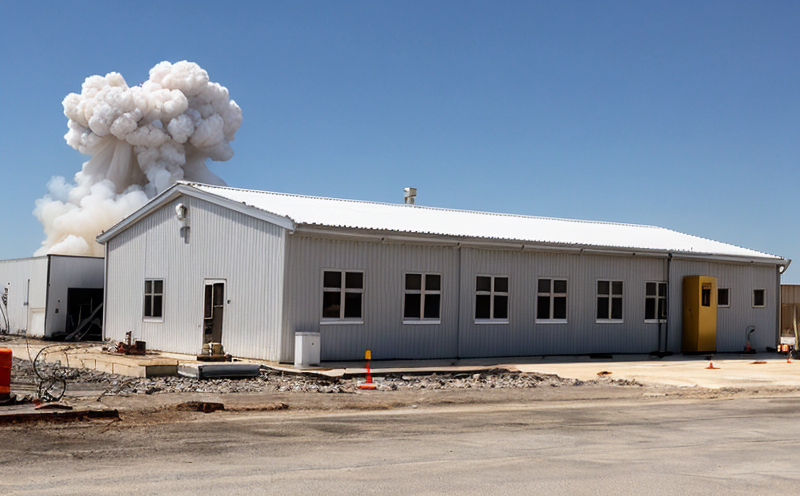Testing for Performance Degradation After Extended Thermal Cycling
Testing for Performance Degradation After Extended Thermal Cycling Ensuring Product Reliability in a Changing Environment
As technology continues to advance at an unprecedented pace, the demand for reliable and efficient products has never been higher. Businesses across various industries are under pressure to deliver high-quality goods that meet increasingly stringent performance requirements. However, the harsh realities of environmental factors such as temperature fluctuations can have devastating effects on product performance.
Thats where Testing for Performance Degradation After Extended Thermal Cycling comes in a critical laboratory service offered by Eurolab designed to simulate real-world conditions and assess the long-term reliability of your products. In this article, well delve into the importance of thermal cycling testing, its numerous benefits, and why it should be an essential component of your product development and quality assurance strategy.
What is Thermal Cycling Testing?
Thermal cycling testing involves subjecting a product to repeated cycles of heating and cooling within a controlled temperature range. This process mimics real-world environmental conditions, allowing manufacturers to evaluate how their products perform under stress over extended periods. By simulating the effects of temperature fluctuations, thermal cycling testing helps identify potential weaknesses in material properties, component interactions, and system reliability.
Why is Thermal Cycling Testing Essential for Businesses?
In todays fast-paced business environment, product performance degradation after extended thermal cycling can have far-reaching consequences. Here are just a few reasons why this laboratory service is crucial for companies seeking to ensure the long-term reliability of their products
Improved Product Reliability By subjecting your products to repeated temperature cycles, youll be able to identify potential weaknesses and develop strategies to mitigate them. This results in improved product reliability, reduced warranty claims, and enhanced customer satisfaction.
Enhanced Quality Assurance Thermal cycling testing allows manufacturers to validate their design, materials, and manufacturing processes, ensuring that their products meet performance requirements under various environmental conditions.
Reduced Production Costs By identifying potential issues early on, you can avoid costly redesigns, rework, or even product recalls. This helps minimize production costs, reduces waste, and gets your products to market faster.
Increased Customer Confidence When customers know that a company has conducted rigorous thermal cycling testing, theyre more likely to trust the quality and reliability of the product. This can lead to increased sales, improved brand reputation, and customer loyalty.
Compliance with Industry Standards Many industries, such as aerospace, automotive, and electronics, have strict regulations and standards for thermal cycling testing. Eurolabs laboratory service ensures that your products meet or exceed these requirements.
The Benefits of Choosing Eurolab for Thermal Cycling Testing
When selecting a laboratory service provider, its essential to consider factors like expertise, equipment, and reputation. Here are some reasons why Eurolab stands out from the competition
State-of-the-Art Facilities Our laboratories are equipped with cutting-edge equipment and temperature control systems, ensuring that your products undergo precise and controlled thermal cycling testing.
Experienced Team Our team of experts has extensive knowledge in materials science, mechanical engineering, and quality assurance. Theyll work closely with you to develop a customized testing plan tailored to your specific needs.
Comprehensive Testing Capabilities Eurolab offers a wide range of thermal cycling tests, including IEC 60068-2-14, MIL-STD-810G, and industry-specific standards.
Timely Reporting and Analysis We provide timely reporting and analysis of test results, enabling you to make informed decisions about product design, development, and production.
Frequently Asked Questions
Q What types of products can benefit from thermal cycling testing?
A Any product susceptible to temperature fluctuations, such as electronics, aerospace components, automotive parts, and medical devices, can benefit from thermal cycling testing.
Q How long does the testing process typically take?
A The duration of thermal cycling testing varies depending on the specific requirements, but it can range from a few days to several weeks or even months.
Q What equipment do you use for thermal cycling testing?
A Our laboratories are equipped with advanced temperature control systems and climate chambers that can simulate temperatures ranging from -50C to 150C.
Q Can I request customized testing plans?
A Yes, our team will work closely with you to develop a tailored testing plan based on your specific product requirements and industry standards.
Q How do I know the test results are reliable?
A Our experts perform rigorous quality control checks throughout the testing process to ensure accurate and reliable results. We also provide comprehensive reporting and analysis to support your decision-making process.
Conclusion
Thermal cycling testing is a critical component of any product development and quality assurance strategy. By subjecting your products to extended thermal cycling, youll be able to identify potential weaknesses, improve product reliability, and enhance customer confidence. Eurolabs laboratory service provides the expertise, equipment, and facilities necessary to simulate real-world conditions and ensure that your products meet or exceed industry standards.
Dont compromise on product performance; choose Eurolab for Testing for Performance Degradation After Extended Thermal Cycling. Contact us today to discuss how our services can help you achieve long-term reliability and customer satisfaction in a rapidly changing environment.




